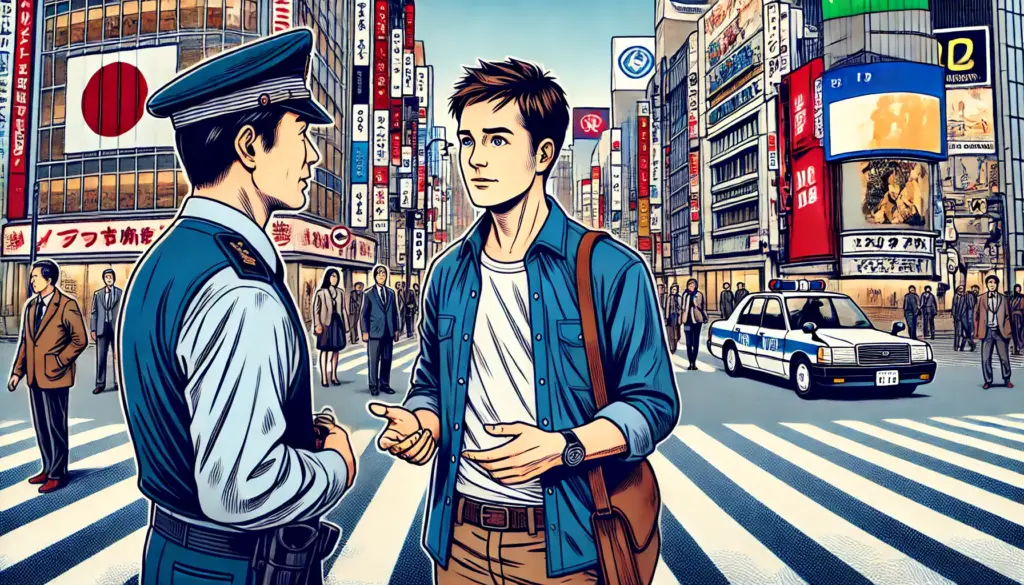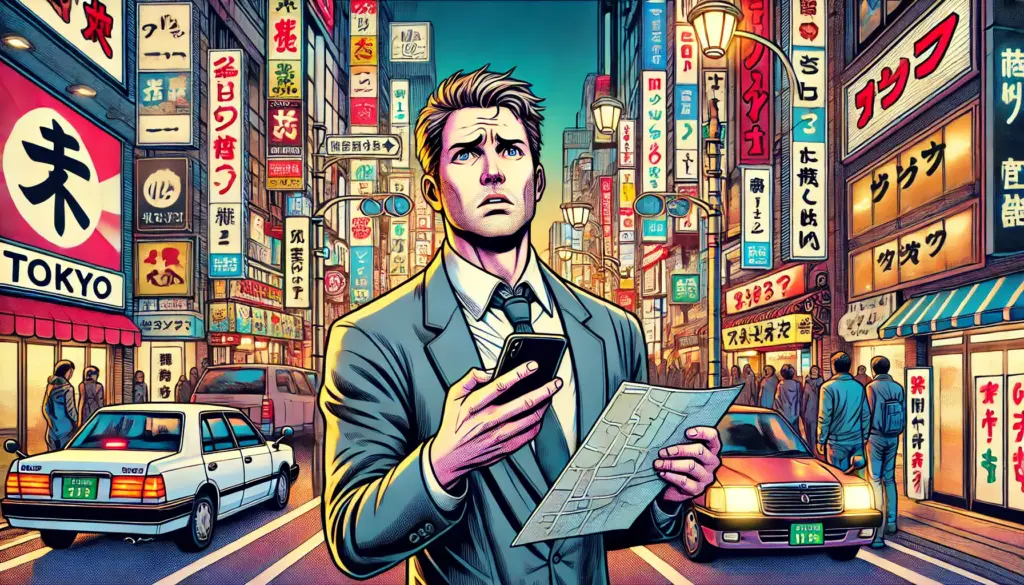
Japan is known for its safety, low crime rate, and clean streets—but there is a darker side to this orderliness that many visitors and residents from abroad have come to experience firsthand. It’s called “shokumu shitsumon” (職務質問), or a police stop-and-question procedure. While the concept is meant to be a tool for crime prevention, it has sparked growing controversy over allegations of racial profiling—especially against foreign-looking men.
Let’s explore what “shokumu shitsumon” is, how much authority the police really have, and how you can respond if you’re targeted. We’ll also introduce perspectives from legal experts who are increasingly questioning the system’s legality and fairness.
🚓 What Is “Shokumu Shitsumon”?
“Shokumu shitsumon” literally means “questioning related to official duty.” Under Article 2 of the Police Duties Execution Act, police officers in Japan are allowed to stop individuals if they reasonably suspect that the person may be involved in a crime or is about to commit one.
The key word here is “reasonably”—but in practice, what qualifies as “suspicious” can be alarmingly subjective. Many foreign residents, especially Black, South Asian, and Middle Eastern men, report being stopped repeatedly for reasons as vague as “walking near a station,” “looking nervous,” or simply “not looking Japanese.”
🇯🇵 Why Has This Become a Racial Issue?
While the law applies to everyone, non-Japanese-looking individuals—regardless of actual nationality or legal status—are often disproportionately targeted. A number of Japanese citizens with foreign roots have also reported frequent stops, even when speaking fluent Japanese and carrying proof of nationality.
In 2023, Japan’s Ministry of Justice acknowledged that racial profiling “should not occur”, yet stopped short of taking legal action against it. Multiple civil society groups, including the Japan Civil Liberties Union, have criticized the government’s silence on the issue.
💼 What Are the Police Legally Allowed to Do?
Here are the facts:
- Police can stop you and ask questions if they suspect you are connected to a crime.
- They cannot force you to follow them to the police station unless you are being arrested or detained under specific charges.
- They can request to see your residence card (在留カード) if you are a foreign resident—you are legally required to show it when asked.
- They cannot search your belongings without a warrant, unless you give consent or are being arrested.
The line between a request and a demand, however, is often blurred in real-life encounters.
🤔 What Happens If You Refuse?
If you decline to answer or walk away, the police may persist or escalate the situation. However, simply refusing to talk or silently showing your residence card is not illegal. Some officers may imply that non-cooperation means guilt, but this is not legally true.
Legal experts such as attorney Masashi Kawai have publicly explained that citizens have the right to ask, “Am I under arrest?” or “Am I free to go?” If the answer is yes, you can walk away. You’re also legally allowed to record the interaction on your phone, though doing so calmly and non-confrontationally is key.
🧠 Best Practices for Foreign Residents and Tourists
If you’re approached by police in Japan:
- Stay calm and polite, even if frustrated.
- Ask if you are required to comply. Try: “Am I being detained?”
- If you are a resident, carry your residence card and present it when asked.
- You can ask the officers for their ID numbers, and it’s okay to take note of them.
- Avoid arguing, but know your rights—you’re not obligated to answer personal questions or follow officers without cause.
- If you feel unsafe, you can say:
“I would like to speak with a lawyer.”
“I am complying, but I do not consent to a search.”
⚖️ Public Outcry and the Push for Change
Recent cases have fueled public debate. In 2022, a Japanese university professor of African descent went viral after being stopped 10 times in a year while doing nothing suspicious. In another case, a U.S. military veteran working as an English teacher sued Tokyo Metropolitan Police for repeated racial stops.
Japanese lawyers and civil groups are increasingly calling for reforms to the Police Duties Execution Act, arguing that the current system lacks clear oversight and enables racial profiling under the guise of crime prevention.
🌏 A Broader Perspective
Japan is not alone in facing these challenges. Countries worldwide, including the U.S. and UK, have long debated similar policing issues. However, in Japan—where public confrontation is rare and trust in institutions is high—the path to reform is often slower.
Still, as Japan becomes more diverse and reliant on foreign labor and tourism, ignoring these systemic issues will only erode public trust—both from within and abroad.
Final Thoughts
Whether you’re a tourist or a long-term resident, it’s important to understand your rights under Japanese law and be aware of the social dynamics at play. While the majority of police officers are professional and respectful, the system itself is due for greater transparency and accountability.





















































